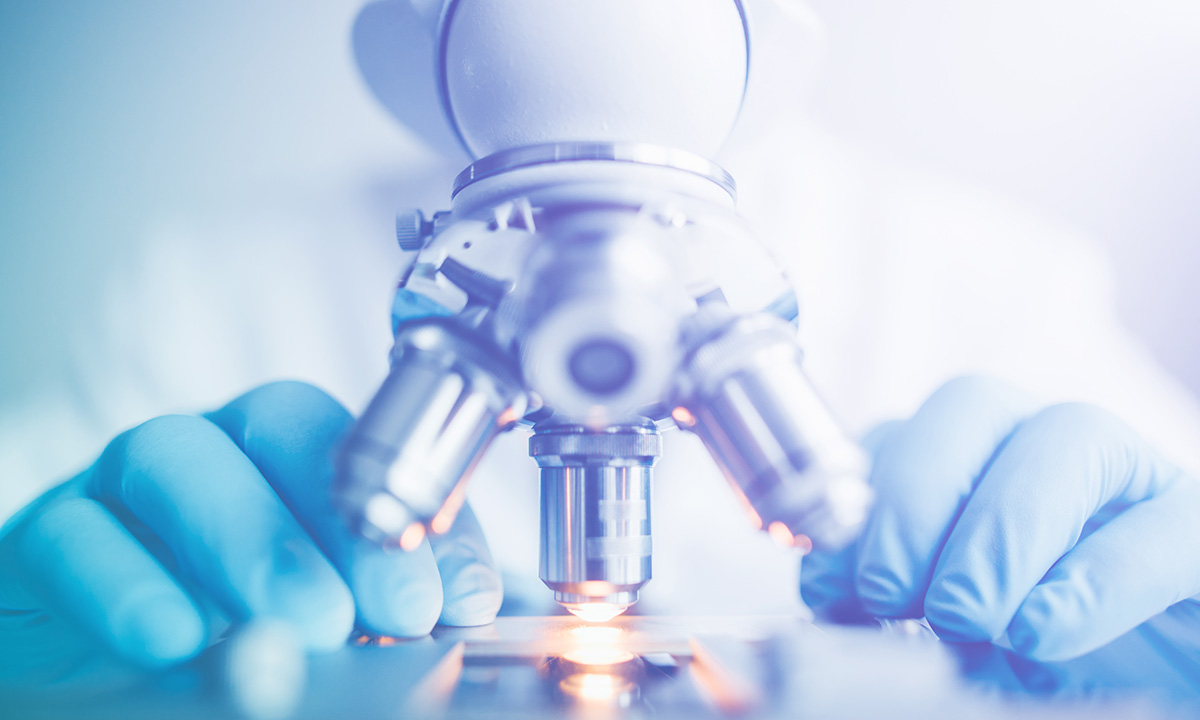
ARUP medical directors and scientists advanced laboratory medicine and improved patient care with publication of more than 130 peer-reviewed articles in fiscal year 2023.
Medical directors and scientists at ARUP Laboratories continued to make significant contributions to the advancement of laboratory medicine in 2023 as primary authors and coauthors of more than 130 peer-reviewed articles in academic journals. They also contributed more than 135 posters or presentations at national and international medical conferences, which is more than double the number from the past couple of years and a return to prepandemic levels as in-person meetings resumed.
Research published in 2023 covered diverse topics in laboratory medicine, including artificial intelligence (AI), use of laboratory-developed tests (LDTs), transfusion medicine, cytogenetics, mass spectrometry, and infectious diseases testing. Links to each of the 2023 publications and a list of all 2023 posters and presentations are available on the aruplab.com Research page. The Publications page also includes lists of publications and links by year dating back to 2000.
ARUP, as a nonprofit enterprise of the University of Utah, has since its inception sought to share and disseminate knowledge to move the field of laboratory medicine forward and improve patient care.
“We are embedded in an academic medical center with training programs. Many of these publications include postdoctoral trainees who are doing residencies and fellowships, and research and other academic pursuits are an important piece of their growth and development,” said Kristi Smock, MD, ARUP vice president and chief medical director of Research and Development and medical director of the Hemostasis/Thrombosis Laboratory.
The ARUP Institute for Clinical and Experimental Pathology®, ARUP’s R&D institute, was created in 1996 to continually develop new tests, improve current tests, and review state-of-the-art laboratory diagnostic technologies. Hundreds of fellows and residents have been trained in programs (through the University of Utah) that include work with the R&D institute, and these professionals now hold scientific and administrative positions in leading institutions, both national and international.
The R&D institute is a component of ARUP’s Innovation Business Unit, led by Chief Scientific Officer Tracy George, MD. The unit also includes a Research and Innovation group, focused on innovative technologies and tests; PharmaDx, focused on development of companion diagnostics to accompany novel pharmaceuticals; and Clinical Trials, which provides access to ARUP’s broad clinical test menu to clinical research organizations, pharmaceutical and biotechnology companies, in vitro diagnostic (IVD) manufacturers, and clinical and academic trials and projects. The New Technology group within the unit provides essential support for marketing and contracting. Together, the multipronged unit functions to keep ARUP at the forefront of the laboratory medicine field.
R&D scientists worked on nearly 900 projects in 2023, which ranged from troubleshooting supply chain issues to simple assay improvements to complex replacements of tests and development and implementation of new tests. The researchers routinely collaborate with industry and clinical partners, such as physicians within the University of Utah Health system and Huntsman Cancer Institute.
“We are part of medical practice in those centers and are constantly talking to the doctors about patients and how they should be monitored and treated. We understand what our clients are facing when they are trying to provide laboratory services to their patients because we are part of the local medical community,” Smock said.
More information about groundbreaking research at ARUP is available in the ARUP Newsroom, via free video lectures at arup.utah.edu, and on the LabMind podcast hosted by Brian Jackson, MD, MS, ARUP medical director of Business Development.
Bonnie Stray, bonnie.stray@aruplab.com
















